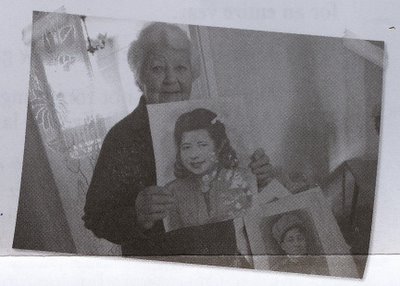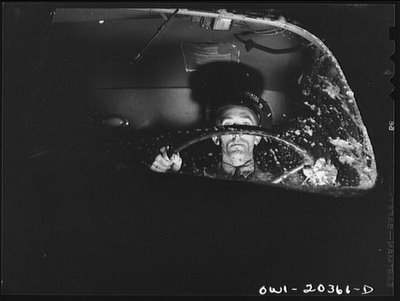
Somehow I missed the the Olympics altogether. I caught a few minutes of the incomprehensible pomp of the opening ceremonies - including the egg-shaped Peter Gabriel singing "Imagine," or maybe just conveying the general notion of the song to the audience - and I heard a couple of things about people winning and not winning medals. Then the talking heads popped up on television to announce the stunning success of the Winter Olympics and the handoff of the winter flame to Canada.

I'm not sure how I managed to ignore two weeks of media-saturated celebration of bodies going hard and wearing funny tight outfits. Or maybe that's why I ignore it; the real interest for me always revolved around which country or bloc of countries was refusing to release its steroid-pumped Performobots into the arena.

In 1980 I was only nine years old, but the US boycott of the Moscow games told me all I needed to know at the time about global politics.

During the 1984 Olympics I was staying at my grandmother's house in Bermuda. Believe it or not, one of the main attractions of going to Bermuda at the time was television. My grandmother's was the only place I got to watch American television. We lived in rural Nova Scotia, beyond the reach of cable tv, so I grew up on the relative sobriety and restraint of Canadian networks. American TV was like crack for my thirteen year old eye, a hyper-coloured orgy of sex and action (even though Canadian television actually showed a lot more sex, American television was a whole lot more titillating).

Canadian Olympic coverage was obnoxiously inclusive and even-handed, taking care not to give too much weight to any one country. As far as American networks were concerned, though, only one country - one real country - was participating in the games that year. The rest of the world stood in as a foil for the US. If another nation won a gold, then it just wasn't mentioned except in passing. After a while it began to seem as if the rest of the world was simply there as set dressing, their efforts an incidental point of comparison to the kampf of American athletic might. If the Eastern bloc refused to participate, it was only part of the overall narrative of triumph. For a Canadian whose only experience of the States was a flood of patrician yachters every summer, the experience was disturbing.

I have a vague memory of the Iran-Contra hearings taking place around the same time. It's actually a memory of my grandmother wandering through the room, glancing at the TV in passing and saying, Ah, why are they picking on that Oliver North guy?

The Iran-Contra hearings took place in 1986. As with the Olympics, I watched the coverage from the sofa in my grandmother's house. There I watched America make Americans answer for American crimes that incidentally included other nations. Clearly I didn't watch the Olympics and the hearings at the same time, but my brain insists on linking them together, as if sports and politics were settings on a single chain.

The 1984 games are the last ones that have any hold on my psyche. Everything afterward seemed overhyped but somehow deflated, obsessed with pomp, performance-enhancing drugs and rigged outcomes. The grand moral narrative of the Cold War had turned into a dull brief dissecting the finer ethical points of an enterprise that appeared increasingly corrupt as more and more athletes turned out to be taking drugs, or money, or crowbars to the knee.

This last photo, titled "convoy at sea," was ordered sight unseen. Caveat emptor.





